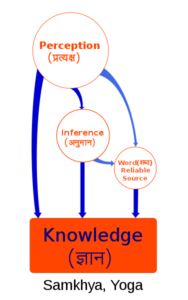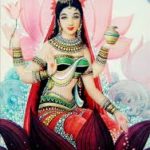Hindu philosophy is one of the richest and most enigmatic philosophies in the world. It is unique in the sense that it tries to bridge the gap between science and consciousness of the mind leading to God. Answers to several normal and metaphysical phenomena have been better explained through certain Hindu philosophies. The essence of this philosophy is to understand oneself as one perceives the existence of God.
The Vedanta
The Hindu philosophy has been explained using six schools of thinking. The most popular one is being Vedanta. The school of thought included mystical aspects of Vedic religion that focused on meditation, self-denial, and spiritual connectivity with God, more than traditional ritualism. The aphorisms of the Vedanta sutras are presented in a cryptic, poetic style, which allows for a variety of interpretations.
Vedanta is separated into six sub-schools of thinking again. These sub-schools each have their own interpretations of relationships between the soul, matter, and God (superpower).
The Samkhya
The second philosophy is called the Samkhya. Unlike the Western philosophy of mind and body, this philosophy advocates duality between the self and the matter. A similar third philosophy is called the Yoga which also includes the existence of God in addition to the self and matter.
The Nyaya
The fourth philosophy is called the Nyaya based on logic, reasoning, and interpretation. According to Nyaya, the four sources of knowledge are perception, inference, comparison, and testimony and is closest to analytical philosophy. Vaisheshika was the fifth school of philosophy which interpreted everything in terms of atomic pluralism. All objects in the physical universe are reducible to certain types of atoms, and Brahman is regarded as the fundamental force that causes consciousness in these atoms. This philosophy has borne answers to many modern-day scientific problems.
The Purvamimamsa
The last philosophy was called the Purvamimamsa which advocated the rules for the interpretation of Vedas. They believe in the power of the mantras(chanting aphorisms) and yajas (rituals) to keep all the activity of the universe going.
 In keeping with this belief, dharma which consists of the performance of Vedic rituals is emphasized.
In keeping with this belief, dharma which consists of the performance of Vedic rituals is emphasized.
The significance of Hindu philosophies lies in understanding and interpreting oneself in terms of consciousness or power, rather than perceiving oneself as a mere body, with desires and needs. This way it becomes easier to detach oneself from worldly matters and work towards the realization of oneself, to seek union with God or the ultimate superpower.






